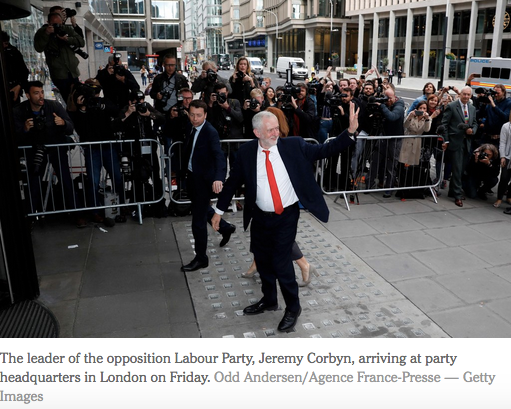The Evening Standard, a London newspaper edited by a Conservative former chancellor of the Exchequer, George Osborne, published 10 questions a month ago about the exit from the European Union, challenging the government to answer them. Among them: How is the withdrawal going to increase trade after leaving the biggest free-trading bloc in the world? How is market access for London’s financial services industry going to be secured? How is migration supposed to be cut to the tens of thousands when no one can identify the businesses whose labor supply will be restricted?
“Not one of these questions has been even addressed, let alone answered, by the main political parties in this election,” the newspaper wrote in an editorial on the eve of the vote. “As a result, it provides no mandate for the details of Brexit.”
In any case, officials say, the mandate matters less than the balance of power at the negotiating table in Brussels.
“We have a weak hand of cards,” said one senior British official, who requested anonymity to discuss the government’s position “The E.U.’s hand is much stronger.”
Big Election Gamble Fails to Pay Off for Britain’s Leader
LONDON — Prime Minister Theresa May of Britain suffered a major setback in a tumultuous election on Thursday, losing her overall majority in Parliament and throwing her government into uncertainty less than two weeks before it is scheduled to begin negotiations over withdrawing from the European Union.
Mrs. May, the Conservative leader, called the snap election three years early, expecting to cruise to a smashing victory that would win her a mandate to see Britain through the long and difficult negotiations with European leaders over the terms of leaving the union.
But according to results reported early Friday morning, the extraordinary gamble Mrs. May made in calling the election backfired. She could no longer command enough seats to avoid a hung Parliament, meaning that no party has enough lawmakers to establish outright control.




